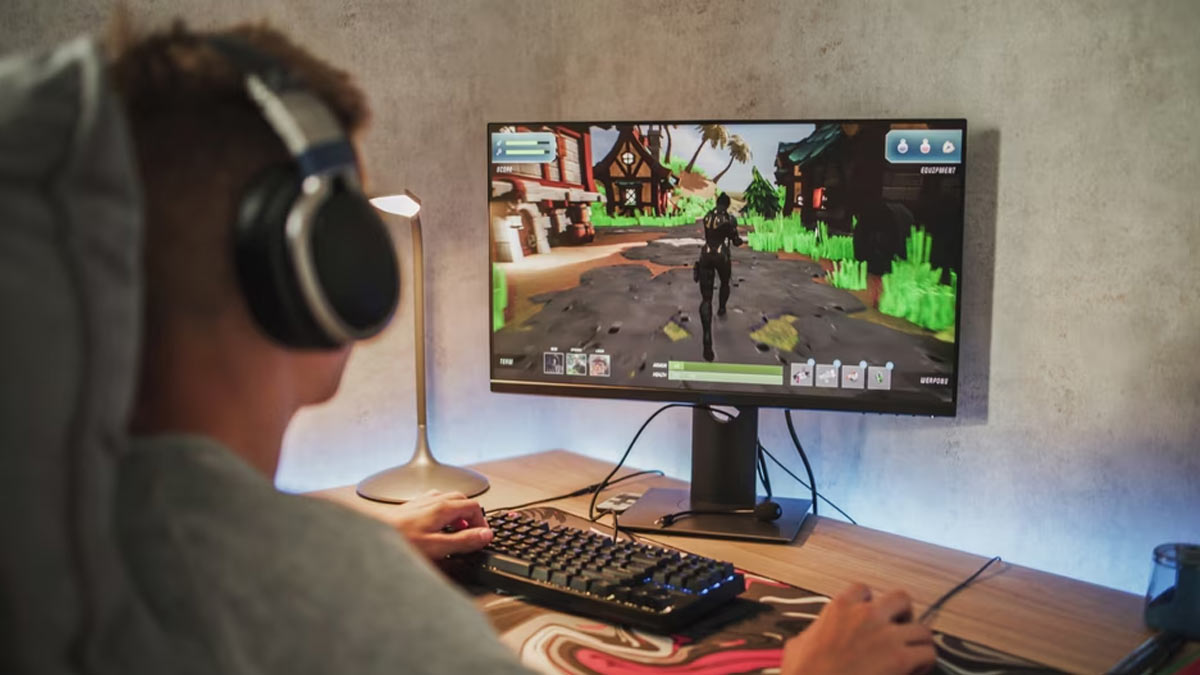
For years, the benefits of physical exercise on the body and brain have been touted by health professionals worldwide. However, a recent study presents a surprising twist: playing video games may boost cognitive function more effectively than regular exercise. The study, published in PsyArXiv, challenges traditional beliefs about how physical activity and gaming impact brain health.
Table of Content:-
Cognitive Benefits of Video Games
The research conducted by neuroscientist Professor Adrian Owen and his team at Western University in Canada revealed that individuals who frequently play video games perform better on various cognitive tasks compared to those who do not engage in gaming. The study involved over 1,000 adults between the ages of 18 and 87, who were assessed on memory, attention, learning, and problem-solving abilities.
The results demonstrated that regular gamers, defined as individuals who play video games for five or more hours per week, performed cognitively like people who were nearly 14 years younger. Those who played less than five hours per week still experienced cognitive benefits, performing like individuals about five years younger. These results suggest that video games may help slow down cognitive decline, enhancing mental agility and processing speed.

Video Games vs. Exercise: A Surprising Outcome
The research findings surprised many because they contradict the widely-held belief that physical exercise directly enhances cognition. Previous studies have long supported the idea that regular workouts improve brain function. Yet, in this study, moderate exercise, which aligns with the NHS recommendation of 150 minutes per week, did not lead to notable improvements in cognitive skills such as memory and attention. Instead, exercise primarily benefited mental health, reducing risks of anxiety and depression.
While physical activity certainly supports overall well-being, its impact on cognitive abilities may not be as significant as once thought. Professor Owen noted, "It was unexpected that video games improved cognition, especially since we have shown previously that computerized ‘brain training’ games do not have the same effect." This revelation highlights the distinction between traditional brain-training games and modern video games, which often feature engaging, strategic gameplay that enhances visual attention, problem-solving, and memory through repetition and practice.
Also Read: Do IUDs Lead to Breast Cancer? Here’s What the Latest Evidence Shows
How Video Games Stimulate the Brain
One of the key findings of the study was that video games tap into the brain’s reward systems, releasing neurotransmitters like dopamine. These chemicals, associated with pleasure and motivation, can potentially have long-lasting effects on cognitive health. Unlike brain-training games, which are often mundane and repetitive, the types of games frequently played today—ranging from action-packed role-playing adventures to intricate puzzle games—require players to use critical thinking and multitasking. This level of mental engagement may be what sets video games apart when it comes to cognitive benefits.
Additionally, frequent gaming involves complex decision-making, visual tracking, and spatial awareness, all of which can lead to improved brain function over time. Games like "The Witcher," "Minecraft," and "Assassin’s Creed" demand strategic thinking, while sports games like "FIFA" and "Rocket League" hone hand-eye coordination and reflexes. By stimulating multiple cognitive domains, video games appear to boost overall brain performance in ways that traditional exercises cannot.
Exercise: Still Beneficial, But Differently
Though this study casts doubt on exercise's role in cognitive enhancement, it is important to recognize that exercise remains critical for physical and mental health. The findings do not dismiss the benefits of physical activity altogether; rather, they show that while regular exercise may not significantly improve memory and learning, it plays an essential role in managing mental health. The participants who did not meet the NHS recommendations for physical activity were twice as likely to suffer from depression and 1.5 times more likely to experience generalized anxiety.
Professor Owen acknowledged that the study primarily focused on long-term cognitive outcomes related to moderate exercise. He added that short bursts of vigorous physical activity may still lead to improved cognition, as many people report feeling more mentally alert after a workout. Therefore, while exercise may not directly enhance cognitive skills like video games do, its impact on emotional well-being and overall health is undeniable.
Also Read: New Study Confirms Kidney Transplants Between People with HIV Are Safe and Effective
The Future of Cognitive Aging
The results of this study open new avenues for exploring how different activities influence cognitive ageing. Professor Owen emphasized that in the future, these findings could guide us in selecting activities that promote brain health and prevent cognitive decline. While exercise remains crucial for maintaining physical and mental well-being, video games may offer an unexpected tool for keeping the mind sharp as we age.
As researchers continue to investigate the long-term effects of gaming on brain health, it’s becoming clear that video games might not just be a source of entertainment—they could be a valuable component in the fight against cognitive decline. Whether you're a seasoned gamer or someone just looking to keep your brain active, it might be time to consider how gaming fits into your daily routine.
Also watch this video
How we keep this article up to date:
We work with experts and keep a close eye on the latest in health and wellness. Whenever there is a new research or helpful information, we update our articles with accurate and useful advice.
Current Version
